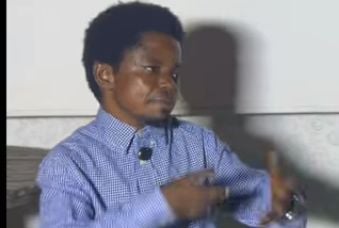The Ghanaian film industry, like many others around the world, often falls prey to typecasting, a practice that confines actors to specific roles based on their physical attributes, ethnicity, or other characteristics. While this can be a convenient shortcut for casting directors, it can also severely limit the opportunities available to actors and perpetuate harmful stereotypes. This issue has been brought to the forefront by a Ghanaian actor of short stature, who voiced his frustration in a viral social media video. He challenged the industry’s tendency to relegate actors of his height to roles such as dwarfs, fetish priests, ghosts, and gods. These roles, while sometimes integral to specific narratives, become problematic when they represent the only options available to actors with a particular physical trait. This reinforces societal prejudices and limits the audience’s perception of what these actors are capable of portraying.
The actor’s central argument revolves around the restrictive nature of these stereotypical roles. Being constantly cast as mystical or otherworldly figures not only limits his artistic expression but also perpetuates a skewed image of short individuals in society. He underscores that these portrayals often present them in a negative or caricatured light, reinforcing harmful stereotypes that can have real-world consequences. This typecasting can lead to societal prejudice and discrimination, affecting how short individuals are perceived and treated in their daily lives. It also deprives the audience of the opportunity to see these actors in diverse roles that showcase their full range of talent and potential. The actor’s plea is not for the elimination of such roles altogether, but rather for a more nuanced and inclusive approach to casting that considers the individual’s talent and abilities beyond their physical characteristics.
To further illustrate the absurdity of this typecasting, the actor highlights the diversity of his own professional experience. He details his work history, which spans various sectors, including activations for major telecommunications companies, hospitality in hotels and restaurants, and the vibrant nightlife of nightclubs. This diverse background serves as a powerful testament to his versatility and adaptability. It underscores the fact that his height has not been a barrier to success in these varied fields, demonstrating his capability to handle diverse responsibilities and interact effectively with a wide range of people. This juxtaposition of his actual professional experience with the limited roles offered in the film industry serves to highlight the disconnect between reality and representation. It emphasizes the industry’s narrow view of his potential and the missed opportunities to showcase his talent in a broader spectrum of roles.
The actor’s message goes beyond the personal; it’s a call for greater inclusivity and respect within the Ghanaian film industry and society at large. He emphasizes the fundamental principle that “nothing is too hard for anyone to do,” advocating for equal opportunities for individuals of all statures and backgrounds. He argues that talent and ability should be the primary criteria for casting decisions, rather than relying on limiting physical attributes. This message resonates with the broader movement towards diversity and representation in media, challenging the industry to move beyond superficial characteristics and focus on the individual’s potential. He advocates for a shift in mindset, urging casting directors and filmmakers to see beyond the stereotypes and recognize the inherent value and talent that every individual brings to the table.
The actor’s use of social media to express his frustration underscores the power of these platforms to amplify marginalized voices and challenge established norms. By sharing his experiences and perspectives, he is sparking a crucial conversation about representation and inclusivity in the entertainment industry. The video serves as a powerful tool for raising awareness and prompting reflection within the industry and amongst the wider public. It provides a platform for others with similar experiences to share their stories and collectively advocate for change. This digital activism has the potential to influence policy and practice within the film industry, driving towards a more equitable and representative landscape. It also empowers individuals to challenge discriminatory practices and demand better representation in the media they consume.
In conclusion, the Ghanaian actor’s plea for more diverse and respectful representation is a crucial reminder of the power of media to shape perceptions and influence societal attitudes. His video challenges the Ghanaian film industry, and by extension, all media industries, to move beyond harmful stereotypes and embrace the talent and potential of all individuals, regardless of their physical characteristics. It calls for a shift in casting practices towards greater inclusivity, ensuring that opportunities are awarded based on merit and ability, not on limiting physical attributes. This advocacy for greater diversity is not only beneficial for individual actors but also enriches the storytelling landscape, offering audiences more nuanced and representative portrayals of the human experience. The actor’s message serves as a powerful call for change, urging the industry to recognize the value of authentic representation and move towards a more equitable and inclusive future.


